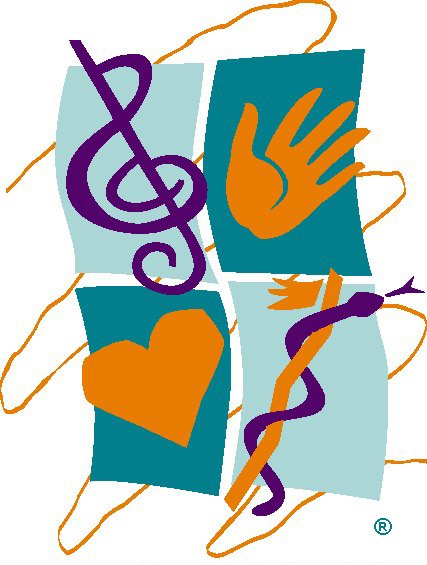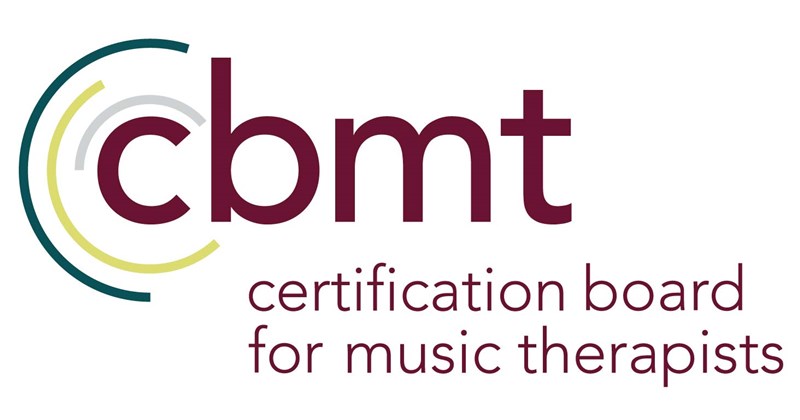Educational Requirements for Music Therapists
Bachelor's Degree (or higher) in Music Therapy
 A professional music therapist holds a bachelor's degree or higher in music therapy from one of over 80 AMTA-Approved college and university programs. The curriculum for the bachelor's degree is designed to impart entry level competencies in three main areas: musical foundations, clinical foundations, and music therapy foundations and principles as specified in the AMTA Professional Competencies. In addition to the academic coursework, the bachelor's degree requires 1200 hours of clinical training, including a supervised internship. Graduate degrees in Music Therapy focus on advanced clinical practice and research.
A professional music therapist holds a bachelor's degree or higher in music therapy from one of over 80 AMTA-Approved college and university programs. The curriculum for the bachelor's degree is designed to impart entry level competencies in three main areas: musical foundations, clinical foundations, and music therapy foundations and principles as specified in the AMTA Professional Competencies. In addition to the academic coursework, the bachelor's degree requires 1200 hours of clinical training, including a supervised internship. Graduate degrees in Music Therapy focus on advanced clinical practice and research.
Board Certification Credential
 Upon completion of the bachelor's degree, music therapists are eligible to sit for the national board certification exam to obtain the credential MT-BC (Music Therapist - Board Certified) which is necessary for professional practice. The credential MT-BC is granted by a separate, accredited organization, the Certification Board for Music Therapists (CBMT), to identify music therapists who have demonstrated the knowledge, skills and abilities necessary to practice at the current level of the profession. The purpose of board certification in music therapy is to provide an objective national standard that can be used as a measure of professionalism by interested agencies, groups, and individuals.
Upon completion of the bachelor's degree, music therapists are eligible to sit for the national board certification exam to obtain the credential MT-BC (Music Therapist - Board Certified) which is necessary for professional practice. The credential MT-BC is granted by a separate, accredited organization, the Certification Board for Music Therapists (CBMT), to identify music therapists who have demonstrated the knowledge, skills and abilities necessary to practice at the current level of the profession. The purpose of board certification in music therapy is to provide an objective national standard that can be used as a measure of professionalism by interested agencies, groups, and individuals.
State-Specific Requirements to Practice Music Therapy
The American Music Therapy Association (AMTA) and the Certification Board for Music Therapists (CBMT) collaborate on the State Recognition Operational Plan, a joint national initiative to achieve official state recognition of the music therapy profession and the MT-BC credential required for competent practice. Desired outcomes include improving consumer access to music therapy services and establishing a state-based public protection program to ensure that “music therapy” is provided by individuals who meet established training qualifications. Inclusion within state health and education regulations can also have a positive impact on employment opportunities funding options, while meeting requirements of treatment facilities and accrediting organizations.
Current State Recognition/Licensure Requirements
| State |
Form of Recognition/Licensure Requirement |
|
California
|
|
|
Connecticut
|
|
|
Georgia
|
|
|
Maryland
|
|
|
Nevada
|
|
|
New Jersey
|
Music therapy license created January 2020. Overseen by the State Board of Creative Arts and Activities Therapies.
|
|
North Dakota
|
|
|
Oklahoma
|
|
|
Oregon
|
|
|
Rhode Island
|
|
|
Utah
|
|
|
Virginia
|
Music therapy license created March 2020. Overseen by the Board of Social Work.
|
|
Wisconsin
|
|
|
|
Current as of February 2021
|
Past Music Therapy Designations (no longer recognized)
From 1998-2019, as a part of the Unification Agreement between the former American Association for Music Therapy and the National Association for Music Therapy to form AMTA, music therapists who held professional designations of ACMT, CMT or RMT were listed on the National Music Therapy Registry (NMTR). The sunset of the NMTR was December 31, 2019 and these designations are no longer formally recognized.

Listen to a discussion about how one becomes a music therapist with AMTA Director of Professional Programs, Jane Creagan, MME, MT-BC.
Standards and Requirements for Music Therapy Practice
Music therapists adhere to specific standards for clinical interventions and ethical conduct in professional practice, which are defined in the following AMTA documents:
The Scope of Music Therapy Practice (2015) broadly defines the range of responsibilities of a fully qualified music therapy professional with requisite education, clinical training, and board certification. Created and approved by the American Music Therapy Association and The Certification Board for Music Therapists, this document considers the contributions, interrelationships, and interdependencies of the CBMT Scope of Practice (2010), the CBMT Code of Professional Practice, the AMTA Standards for Education and Clinical Training, the AMTA Standards of Clinical Practice, the AMTA Professional Competencies, and the AMTA Code of Ethics. Download the Scope of Music Therapy Practice in .pdf format.
The AMTA Standards of Clinical Practice for music therapy are defined as rules for measuring the quality of services. These Standards are designed to assist practicing music therapists and their employers in providing quality clinical interventions. The AMTA Standards of Clinical Practice undergo periodic revision to remain current with advances in the field.
The AMTA Code of Ethics define tenets of professional conduct for practicing music therapists. Because music therapists believe in the dignity and worth of every person and strive to establish and maintain high standards in public service, we require of ourselves the utmost in ethical behavior. The Code of Ethics is applicable to AMTA members.
The AMTA Professional Competencies provide a definition of the current entry level skills of a music therapist who has completed either a bachelor's degree or its equivalent in music therapy. All AMTA approved bachelor's degree programs incorporate these competencies in their music therapy curriculum. As the clinical and research activities of music therapy expand, these competencies will be revised to reflect the growth of the professional knowledge base.
Note: Membership in AMTA does not ensure the participant is a Board Certified Music Therapist.
Verify music therapy board certification status at www.cbmt.org